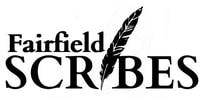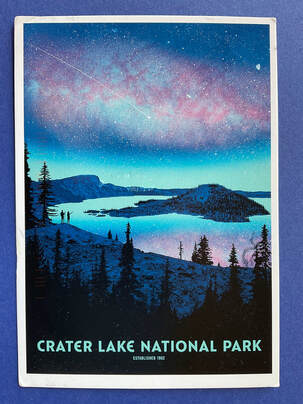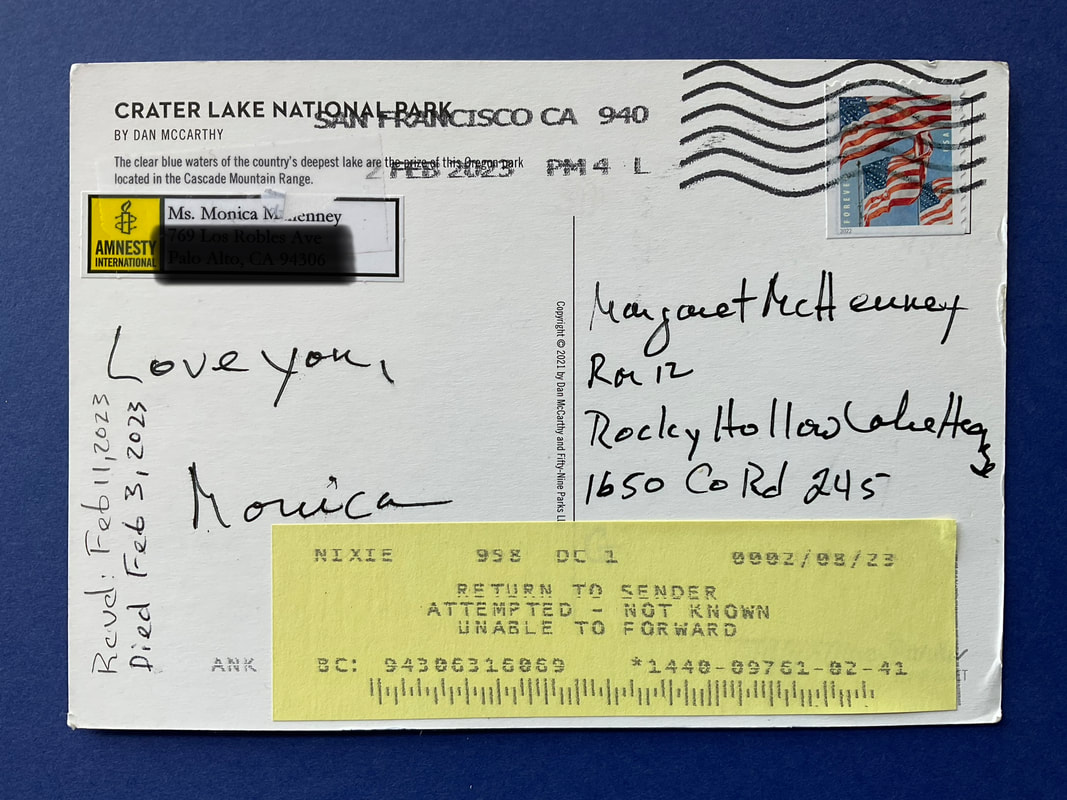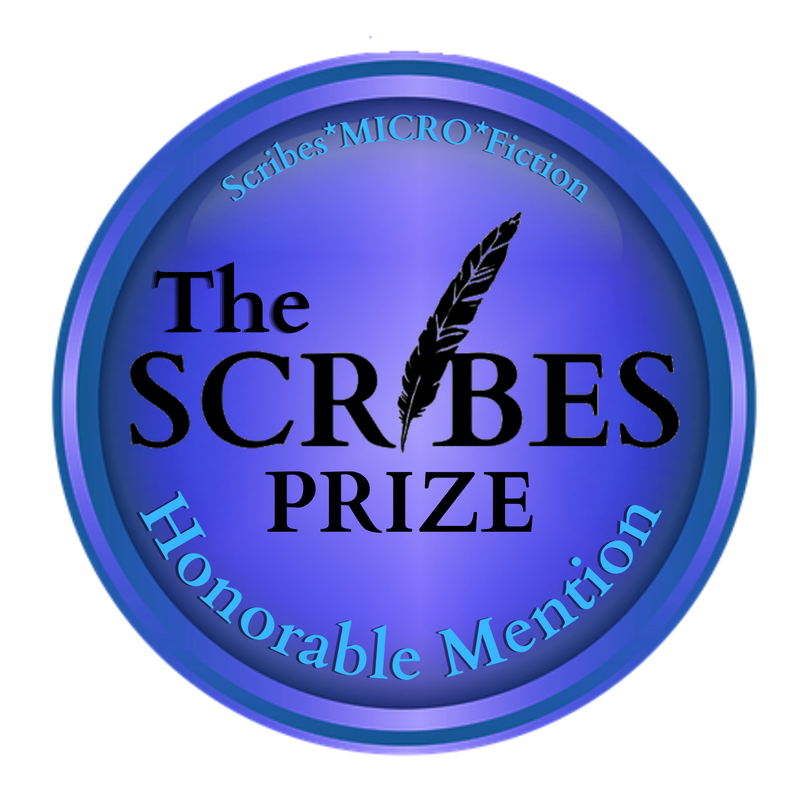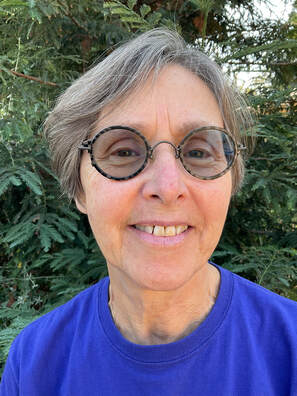
Monica McHenney's novel-in-stories, titled Shrew Taming, is close to completion. She has published drabbles in ScribesMICRO and The Dribble Drabble Review and short stories at Sylvia, True Chili, and The Palo Alto Weekly. She writes a weekly drabble or poem at Monica's Monday Morning Flash, https://www.monicaflash.com. The drabbles are mostly inspired by fairy tales and myths or by puzzling things her husband says at breakfast. The poems always seem to be about environmental issues no matter where they start out. Writing poetry is a new pursuit, inspired by craft lectures at the Napa Valley Writer's Conference and by eating breakfast and/or lunch with groups of poets for the entire week there. In general, food inspires Monica. She makes sourdough bread from a one-hundred-year-old culture passed down through two generations of bakers. She'd rather cook than go out to eat. Now, she needs to feed the dogs. |
Interview with Monica McHenney
about her story "The Last Postcard"
Honorable Mention for The Scribes Prize
What inspired this piece?
Before I wrote The Last Postcard, I spent about a month thinking about the postcard's round trip journey from the postbox back to me. The emotion that comes through snuck in when I sat down to write. Before that point, it was more like solving a puzzle. I knew this was the last postcard I had sent, but it took some digging to figure out why it came back.
In the story, I say, “Maybe it was a premonition that stopped my hand.” That line was inspired by my mother's account of a premonition she had when her father was dying. It prompted her to drive for half an hour over country roads in the middle of winter with three small children in the car. As it turned out, her father had a heart attack. She was able to say good-bye. Normally, my mother wasn't all woo woo about things, but she made an exception for death. I can imagine her trying one last time to communicate with me before her soul slipped away.
I live five hours by plane another two by car from where my mother died. Premonition or no, there wasn't time to make a last physical connection with her. The postcard stood in as a substitute for being with her. What was left when I compressed the story to a hundred words was the essence of my emotional response to her death.
What draws you to the micro-fiction format?
I like finding the precise entry and exit in a story that will make it into 100 words. It comes in a flash. I love that inspired feeling when the words come together in just the right way to express a thought, create a character, or tell a story.
Who are some authors that inspire you?
There are so many and they are different on different days and depend on what I'm working on and what's going on in my life. Austin Smith, a poet and short story writer, is someone whose stories I often suggest to people. His use of language and Mid-West settings draws me in. Marilynne Robinson, Ursula Hegi, Zadie Smith and Toni Morrison write the novels I wish I could write. Jasmine Sawers writes flash fairy tales. Her book, The Anchored World, was a finalist for the PEN/Robert W. Bingham Prize for Debut Short Story Collection. Her stories are steeped in folk and fairy lore to which she brings a multicultural and inclusive perspective. I think that my next project will involve micro-fiction fairy tales.
If you could continue writing your story after these 100 words, what would happen next?
To continue this story, I would turn it into fiction. The next scene would involve an aide who shrugs when she finds my mother on the floor and can't get her back into bed.
The story would move from the aide's perspective, to her supervisor's response, to my youngest sister who lives close by as she sits by our mother's bed, to my sister in New Mexico who talks on the phone with my youngest sister as my mother is dying, to a call with my other two siblings to pass on the news. The story would end with my mother, who is unable to speak.
What's next on the horizon for you?
I publish a weekly drabble at Monica's Monday Morning Flash, https://monicaflash.com.
I have sent the first half of my WIP, a novel-in-stories titled Shrew Taming, to a group of beta readers. I'm nearly done with the last nine stories and will send those to the same group soon.
I am also submitting some of those stories from the book to literary magazines. One story was short-listed in the 2022 Palo Alto Weekly Short Story contest.
What is your favorite time to write flash fiction?
At least one week before I post or submit and usually at two AM when I invariably wake up for about an hour. I write on my IPad and mail the story to myself. I revise in the middle of the night, several times during the week.
If my husband suggests something at breakfast, I jot it down on a teabag wrapper and start to write after the idea has steeped for a few hours.
Before I wrote The Last Postcard, I spent about a month thinking about the postcard's round trip journey from the postbox back to me. The emotion that comes through snuck in when I sat down to write. Before that point, it was more like solving a puzzle. I knew this was the last postcard I had sent, but it took some digging to figure out why it came back.
In the story, I say, “Maybe it was a premonition that stopped my hand.” That line was inspired by my mother's account of a premonition she had when her father was dying. It prompted her to drive for half an hour over country roads in the middle of winter with three small children in the car. As it turned out, her father had a heart attack. She was able to say good-bye. Normally, my mother wasn't all woo woo about things, but she made an exception for death. I can imagine her trying one last time to communicate with me before her soul slipped away.
I live five hours by plane another two by car from where my mother died. Premonition or no, there wasn't time to make a last physical connection with her. The postcard stood in as a substitute for being with her. What was left when I compressed the story to a hundred words was the essence of my emotional response to her death.
What draws you to the micro-fiction format?
I like finding the precise entry and exit in a story that will make it into 100 words. It comes in a flash. I love that inspired feeling when the words come together in just the right way to express a thought, create a character, or tell a story.
Who are some authors that inspire you?
There are so many and they are different on different days and depend on what I'm working on and what's going on in my life. Austin Smith, a poet and short story writer, is someone whose stories I often suggest to people. His use of language and Mid-West settings draws me in. Marilynne Robinson, Ursula Hegi, Zadie Smith and Toni Morrison write the novels I wish I could write. Jasmine Sawers writes flash fairy tales. Her book, The Anchored World, was a finalist for the PEN/Robert W. Bingham Prize for Debut Short Story Collection. Her stories are steeped in folk and fairy lore to which she brings a multicultural and inclusive perspective. I think that my next project will involve micro-fiction fairy tales.
If you could continue writing your story after these 100 words, what would happen next?
To continue this story, I would turn it into fiction. The next scene would involve an aide who shrugs when she finds my mother on the floor and can't get her back into bed.
The story would move from the aide's perspective, to her supervisor's response, to my youngest sister who lives close by as she sits by our mother's bed, to my sister in New Mexico who talks on the phone with my youngest sister as my mother is dying, to a call with my other two siblings to pass on the news. The story would end with my mother, who is unable to speak.
What's next on the horizon for you?
I publish a weekly drabble at Monica's Monday Morning Flash, https://monicaflash.com.
I have sent the first half of my WIP, a novel-in-stories titled Shrew Taming, to a group of beta readers. I'm nearly done with the last nine stories and will send those to the same group soon.
I am also submitting some of those stories from the book to literary magazines. One story was short-listed in the 2022 Palo Alto Weekly Short Story contest.
What is your favorite time to write flash fiction?
At least one week before I post or submit and usually at two AM when I invariably wake up for about an hour. I write on my IPad and mail the story to myself. I revise in the middle of the night, several times during the week.
If my husband suggests something at breakfast, I jot it down on a teabag wrapper and start to write after the idea has steeped for a few hours.
